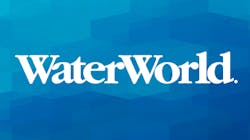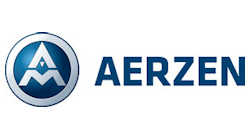Consequences of the Infrastructure Bill and Buy American
On August 10, 2021, the U.S. Senate passed a $1 trillion infrastructure package, providing welcome funding for our roads and bridges, transit, ports, broadband, electric grid, and water systems.
If the package passes the House of Representatives without significant changes, $55 billion will be divided among several EPA grant programs and focus areas such as lead service line replacement. Both the Clean Water and Drinking Water State Revolving Fund (SRFs) — the “bread and butter” of the municipal water industry — will each receive $11.7 billion over five years.
The bill also currently includes expanded Buy America(n) guidelines — or, more appropriately, domestic content requirements for the water industry. What does it mean for manufacturers in this market?
The Buy American Legislation
The intent of the original 1933 Buy American Act (BA Act) and its amendments was to stimulate American manufacturing through direct Federal government procurement requirements. Waivers, exemptions, and acceptance of goods from U.S. trading partners has, however, made this law more malleable over time.
Since the original BA Act, there has been other legislation adding additional domestic content requirements including the 1982 Buy America Act that addressed Federal flow down funding to highways, railways, bridges and mass transit. The 2009 American Recovery and Reinvestment Act impacted the water industry, but only for a finite period of time. The 1978 Pennsylvania (PA) Steel Act has also impacted our industry, albeit only at the state level.
Most recently, the American Iron and Steel (AIS) provisions, passed as part of the Consolidated Appropriations Act of 2014, directly impacts EPA’s SRFs and WIFIA programs. It’s important to recognize that AIS applies to a specific list of iron and steel products used in the water sector — NOT complex systems and finished goods such as filtration systems, blowers and aeration equipment, membrane bioreactor systems, pumps, VFDs, etc.
Manufacturers and BA Compliance
Aerzen USA, like many manufacturers in the water and wastewater market, is a U.S. division of a foreign company. Over time, the company was able to adjust to the nation’s domestic steel requirements. However, will it be able to do so with the broad provisions of the Senate bill that expands requirements to all manufactured products? If so, at what cost?
At Aerzen USA’s headquarters in Coatesville, Pa., the company manufactures machinery for the U.S. market. Its finished products contain components from several countries.
Ironically, products made in our Pennsylvania plant cannot be provided to the state’s water systems because of PA Steel Act prohibitions. When ARRA passed, it was actually easier for Aerzen to comply with BA, since “substantial transformation” enabled it to use more of the components in its standard supply chain.
Aerzen is no different from many other companies in our industry; we would be hard pressed to find foundries that could produce the precision castings or tooling to meet our design standards, particularly in the timeframe outlined in the Senate bill.
The Senate bill contains a confusing mix of Buy American, Buy America, and expanded domestic content requirements that exacerbates the already confusing landscape of compliance across differing Federal Agency and state requirements. Much remains to be sorted out before the infrastructure package should come into effect.
It is more critical than ever that our industry have a voice to explain the impact of these requirements on business operations and utility construction schedules and costs. Fortunately, members of WWEMA have a voice as we try to understand, plan for, and educate the government about the far-reaching impacts of their actions. WW
About the Author: Tom McCurdy is director of sales in the environmental division of Aerzen USA. He also serves on WWEMA’s Board of Directors and as the Chair of the Legislative and Regulatory Committee. WWEMA, a non-profit trade association formed in 1908, represents many of the most prominent and influential water and wastewater technology manufacturers working together to shape the future of our industry. Learn more about WWEMA at www.wwema.org.




